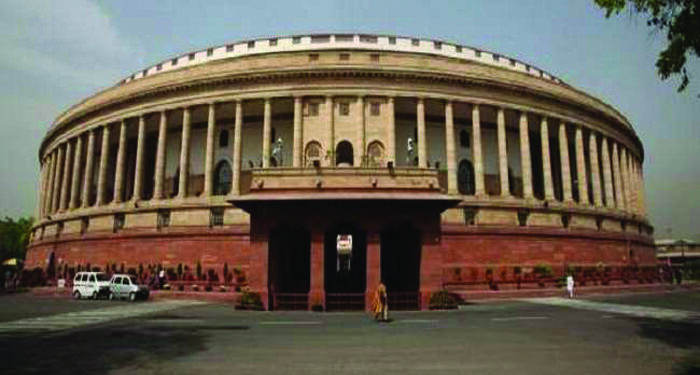NEW DELHI, FEB 9

Union minister Jitendra Singh on Wednesday said the Centre is examining the comments received from the states/UTs on a proposal to amend rules on IAS officers’ central deputation.
In a written reply in the Lok Sabha, he said, the Indian Administrative Service (Fixation of Cadre Strength) Regulations, 1955 provide for a central deputation reserve not exceeding 40 per cent of the senior duty posts of a cadre/joint cadre.
However, state governments have not been sponsoring adequate number of officers for central deputation to meet the requirements of the government of India, said Singh, the minister of state for personnel.
Therefore, in order to address the above problem, comments have been sought from states/Union Territories, in terms of the provisions contained in Section 3 of All India Services Act, 1951 on a proposal to amend Rule 6(1) of IAS (Cadre) Rules, 1954, relating to the central deputation of IAS officers, the minister said.
“The Centre is examining the comments received from the states/UTs on a proposal to amend Rule 6(1) of IAS (Cadre) Rules, 1954, relating to the central deputation of IAS officers,” he said.
The issue of proposed amendments affecting the federal structure of the country does not arise, the minister said, responding to a question “whether the proposed amendments are likely to affect the federal structure of the country?” In another reply, Singh said the extant cadre rules of all three all India services (AIS) contain provisions for central deputation.
“However, state governments have not been sponsoring adequate number of officers for central deputation to meet the requirements of the government of India. In view of the above, in terms of the provisions contained in Section 3 of All India Services Act, 1951, comments have been sought from states/UTs on a proposal to amend Rule 6(1) of respective cadre rules, relating to the central deputation of AIS office,” he said.
The Indian Administrative Service (IAS), Indian Police Service (IPS) and Indian Forest Service (IFS) are three all India services. As many as nine non-BJP ruled states have opposed the Centre’s proposal that gives it an overriding power while deciding on central deputation of IAS officers, whereas eight others have given their consent.
Odisha, West Bengal, Maharashtra, Kerala, Tamil Nadu, Telangana, Chhattisgarh, Jharkhand and Rajasthan have raised their voice against the amendments, officials said.
On the other hand, Arunachal Pradesh, Manipur, Tripura, Madhya Pradesh, Uttar Pradesh, Gujarat, Haryana and Himachal Pradesh have given their consent, they added.
Karnataka and Meghalaya had opposed the proposal initially sent to them last month but are expected to send a revised proposal, the officials said, adding that Bihar had also opposed the move earlier.
The Department of Personnel and Training (DoPT) has recently proposed changes in the IAS (Cadre) Rules, 1954 that will take away the power of states to override the Centre’s request for seeking officers on central deputation.
According to the DoPT proposal sent to chief secretaries of all state governments on January 12, “In specific situations where services of cadre officer(s) are required by the central government in public interest, the central government may, seek the services of such officer(s) for posting under the central government… and the state government concerned shall give effect to the decision of the central government within the specified time”.
It further states that “wherever the state government concerned does not give effect to the decision of the central government within the specified time, the officer(s) shall stand relieved from cadre from the date as may be specified by the central government”.
Existing rules allowed mutual consultation for the officers’ central deputation. The DoPT had written to chief secretaries of all state governments on December 20, 2021, after which reminders were sent on December 27, 2021 and January 6 and January 12.
The January 12 letter to states specifically mentions the Centre’s power to override the states’ disagreement on sending the officers on deputation.












